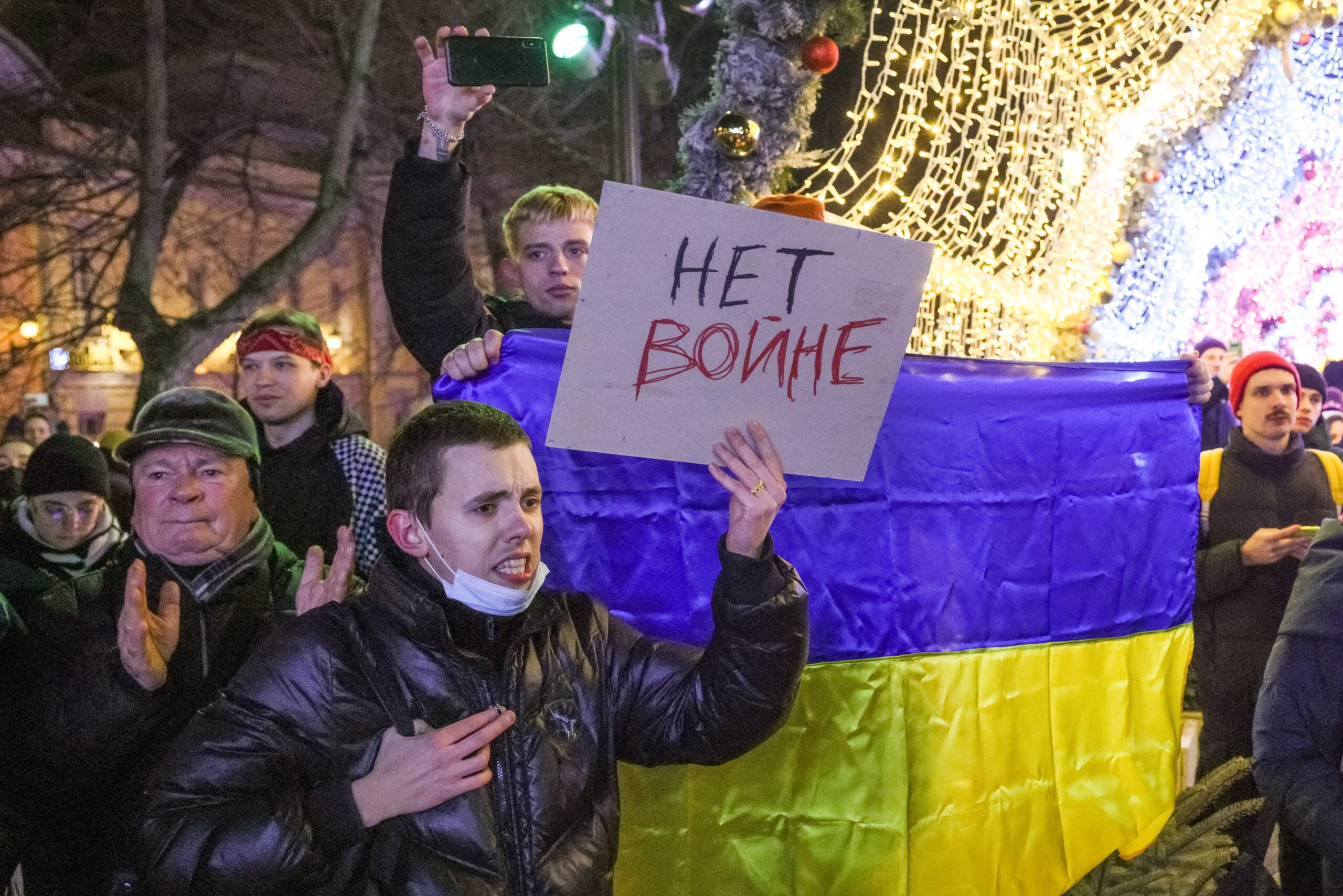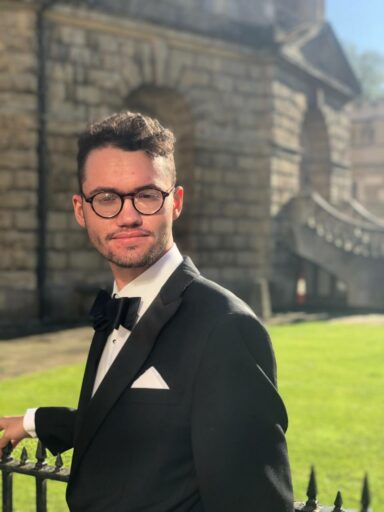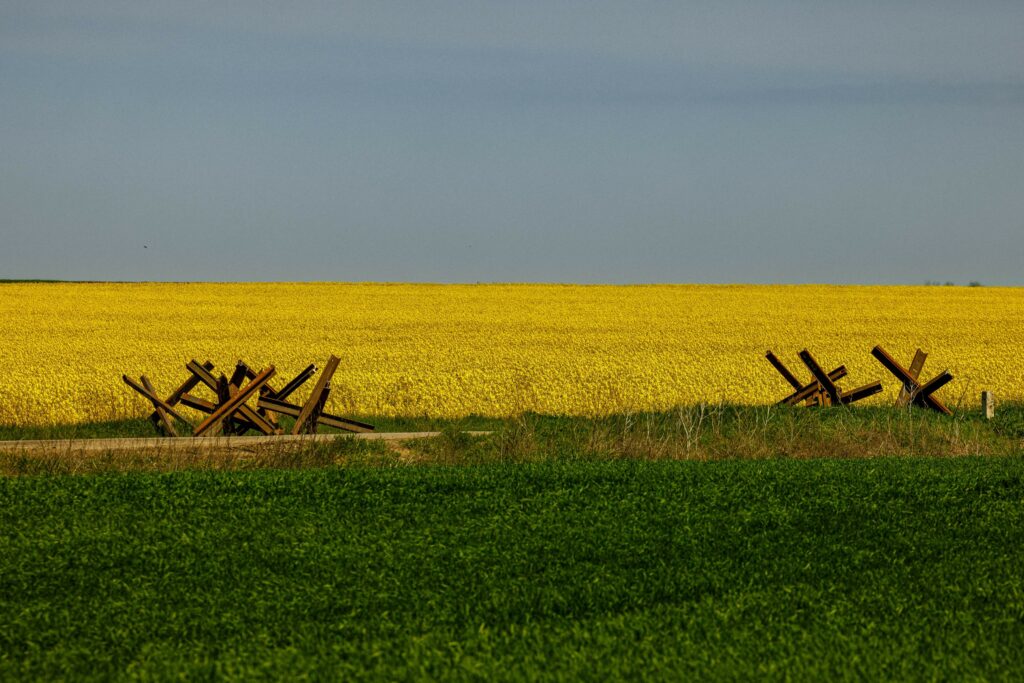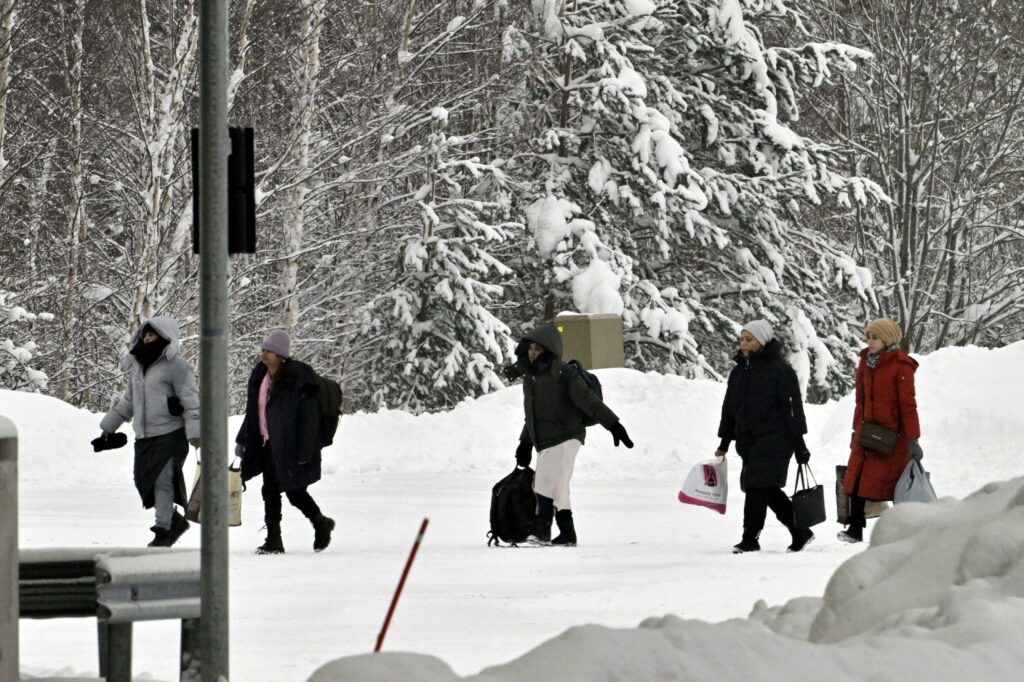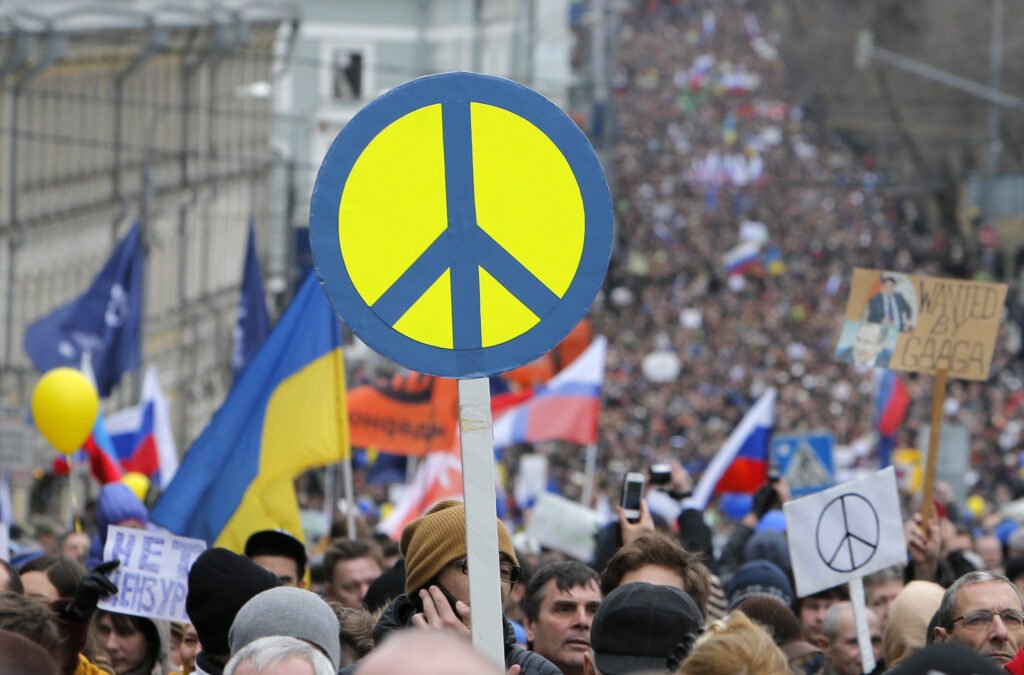When the Kremlin unleashed its full-scale invasion of Ukraine on February 24, 2022, it also intensified its campaign of destroying civil liberties in Russia. The Kremlin has been using the invasion to mobilise the security state and clamp down on Russian civil society. By 2024 many of the processes the Kremlin launched in 2022 have stabilised, ushering in a new repressive status-quo.
Here I lay out some of the key characteristics of this new status quo, using data from legal aid and human rights monitoring project OVD-Info. OVD-Info tracks Russian repression and its data lays bare the strengthening of the Russian security state.
«No» to «no to war».
The most immediately obvious type of repression is what has become known, paradoxically, as «anti-war repressions», «antivoennye repressii». Tens of thousands of Russians have spoken out against the war, and many have been punished by the Kremlin. The years of the full-scale war have seen a transformation of tactics on the part of anti-war Russians. Initially, people opted for open protests, even chucking Molotov cocktails at riot police. However, an unchecked police brutality in response all but extinguished mass protest in Russia, with only a few notable exceptions. The bulk of detentions for overt anti-war protest came in 2022 — OVD-Info knows of 18,910 detentions, after which the number fell drastically, only 34 this year.
Anti-war protests in Russia still exist, but they have moved underground — graffiti, social media posts, interpersonal conversations. Those who choose more direct action tend to do so covertly, attacking military recruitment centers and relay cabinets. The year did start, however, with a mass protest in remote Bashkortostan over the jailing of a local anti-colonial — and somewhat anti-war — activist. While the thousands-strong protest was not purely anti-war, it did have anti-war overtones, documented in OVD-Info’s reports from the ground.
The Bashkortostan protest is an anomaly and there is a good reason for it. The authorities have made it clear that any attempt at street protest will be met with extreme violence. Take the aforementioned Bashkortostan protest — the security services stomped out street dissent in the city, where one of the protesters died in police custody under murky circumstances and another was driven to suicide after facing authorities’ pressure.
But the discursive, textual, protest is not much safer. In 2024 we saw the routinisation of massive jail terms for «spreading knowingly false information about the military». «Military fakes», (voennye feiki) is what Russians have come to call this hastily adopted Criminal Code article. This is one of the most common articles used for political persecution. 101 are imprisoned today for «fakes», and in the last quarter it has been the third most used article, after «calls for terrorism» and «repeat discrediting the military». Note that these all deal with speech, and not action — meaning that people get repressed and persecuted for voicing their disagreements online and elsewhere.
Anti-war protest in Russia has adapted to being underground — and the authorities have adapted also, making repression against free speech into the new normal.
Scope expansion
This leads to a second notable feature of the status quo: the drastic expansion of repression’s scope, even to the social groups which might have been considered protected from the state’s overreach — like the elderly, or people in remote areas. There are now over 1,000 people imprisoned on political grounds in Russia. Repression is reaching places and communities that previously did not engage in protest activity and had little to no interaction with the Kremlin’s enforcers — according to reports from the ground this is exactly what happened in Bashkortostan, where protesting locals were shocked and surprised by the crackdown on them.
A sign of the widening scope is attacks on the elderly. The Kremlin had historically positioned itself as a protector of traditional values — which in Russia implies care for the elderly. This is no longer the case. 66 people currently jailed for political reasons are over retirement age. Perhaps they were attacked because they were an easy target for the FSB — but this assault on the elderly shows a an erosion of the Kremlin’s supposed limits. Take the recent case of 68-year-old Nadezhda Buyanova, a career paediatrician, who was sentenced to 5.5 years under the «fakes» article. The sentence was based wholly on the unverified and unverifiable testimony of her patient who claimed online that Buyanova insulted her ex-husband’s service in Ukraine. Buyanova made no public anti-war statements and had been working at her hospital for decades — yet the repression still reached her. Over a hundred Russian doctors even recorded an appeal to the authorities calling on them to spare Buyanova. The appeal went unheeded.
Both imprisonment and political persecution dynamics shot up in 2022, although the number of new cases went down in 2023, stabilising at around 600 in total. It is important to note here, that while some commentators are tempted to call the repression in Russia «Stalinist», Putin’s repressive apparatus does not have the mobilising zeal and the vast size that Stalin commanded. Russia’s enforcers are overwhelmed with new cases as it is, and the Kremlin has instead opted for randomising repression — achieving a high degree of fear within Russia while using fewer resources. Instead of repressing people en masse they make examples out of a relatively randomly selected few.
Presumably, this is aimed at keeping the population in fear, especially sections of the population perceived as enemies — queer people, anti-war activists, journalists, and so on. While the repression is not necessarily widely publicised, it is not hidden from the public either — both independent observers and pro-Kremlin outlets write about it, although the latter cheerlead rather than criticize.
Uncivil society
The Buyanova case is a good example of another feature of the new repressive status quo — the use of uncivil society. As they say in Russia, «the new is just the old that has been well-forgotten,» and the adage is true in this case. Uncivil society is a patchwork of activist groups and individuals who work to aid the authorities in their crackdown on dissent.
Their types and motivations can vary. Sometimes these people are on the authorities’ payroll and sometimes they are motivated by ideology, or they are simply searching for better career prospects. Some are what are called «serial denouncers». They are open and proud about their proclivity for writing denunciations of the new «enemies of the people». Some denunciations are more amateur, like in Buyanova’s case.
The woman who began the proceedings against Buyanova did so by posting a video recounting her alleged argument with the doctor. The video was then picked up by a right-wing pro-Kremlin Telegram channel Mash. The authorities have spent years saturating Telegram with these friendly new media and content creators — and the investment is paying off. Mash was successful in raising hell — after the publication, Buyanova was immediately fired and her home was raided by the authorities who destroyed her apartment while confiscating valuables. A lawyer was not even allowed to enter the scene.
Uncivil society is not a new phenomenon. Since the early 2000s the cooperation between far-right figures and the Russian security state was already infamous. Now such groups not only promote anti-immigrant sentiment, but also dabble in raising money for Russian soldiers in Ukraine and attacking anti-war figures in Russia. They do all of this with the support of the authorities. Take the case of the recently emergent far-right Russian Community (Russkaya Obshchina). The group existed for several years but has grown in popularity recently, and now claims 150 branches all over Russia. Since 2023 the group’s members have begun embedding in police raids.
The Community also leads their own raids — this year they raided a farmer’s market in Yekaterinburg, accompanied by the police and local politicians. After detaining or scaring off the non-ethnically Russian vendors the Russian Community activists encouraged passers-by to steal the produce. A couple weeks ago the Russian Community also caused the cancellation of a concert in Yekaterinburg. They demanded that an allegedly anti-war artist not be allowed to perform in the city.
The Kremlin has been growing its uncivil society. In the new status quo, these activists feel emboldened — especially when it comes to migrants and anti-war dissidents.
Bodies on the line
The other area where uncivil society has been active is in the Kremlin’s growing assault on bodily autonomy. Of course, like much else listed here, this started way before the full-scale invasion. The infamous «gay propaganda» law was adopted in 2012. However, in 2024 OVD-Info now regularly documents raids on queer spaces — clubs and drag shows. The new status quo thus implies an assault on LGBTQI+ people who dare to be visible in public.
I have written a lot on the topic, especially on the connection of the current queerphobic persecution with the global conservative movement — how the Kremlin borrows talking points and policy plans from Western conservatives. This, combined with the Kremlin’s anti-migrant policies, is solidifying the Kremlin as a beacon for far right values in the eyes of many in the European right.
The Kremlin’s attack on bodily autonomy, however, might go beyond appealing to conservatives globally. Recently, Putin signed a ban on «Childfree Propaganda» into law. The supposed «childfree movement» is nonexistent, at best it is an ironic subculture centered around a few online platforms promoting safe sex and generally opposing the perceived patriarchal dogma of the necessity of children. The Kremlin, however, seems set in its intentions to reduce women’s bodily autonomy by going after the «childfree movement» and even going after abortions, which are becoming increasingly more challenging to get in Russia. The authorities even unofficially put pressure on doctors to discourage women from getting abortions. They also restricted the sale of abortion pills in 2023.
The new status quo is one where the state is rapidly getting more and more involved in matters of life, birth and sex.
Summary
Summing up, 2024 saw a degree of stabilisation of the new repressive landscape within Russia. Anti-war protest has become an almost exclusively underground activity that is nonetheless severely punished by the authorities. The authorities are out to create an atmosphere of fear, using somewhat random but brutal repression to suppress dissidents throughout Russia, widening the scope of repression to new places and groups. The authorities are slowly growing more totalitarian in their approach, most visible in the attack on bodily autonomy throughout Russia. The authorities are aided by uncivil society — groups of activists, who are egging the repression on. There is much that remains to be analysed — like the growing rate of transnational repression or the Kremlin’s successful obliteration of opposition structures within Russia. Yet, these trends are arguably the most defining of Russia’s wartime repression.
